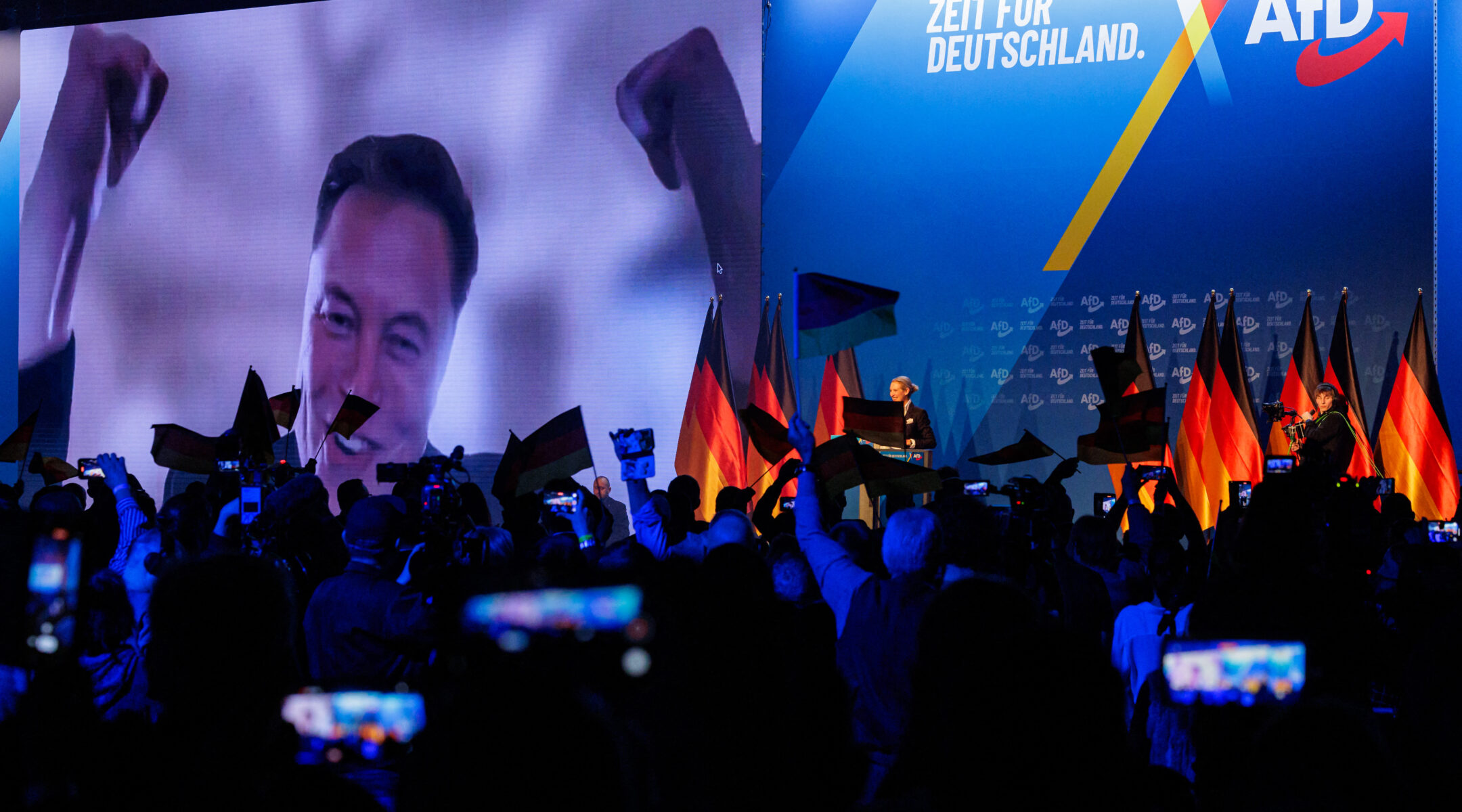Weeks after it was shut out of Germany’s new government, the far-right party Alternative for Germany has been designated as an extremist group by the country’s domestic intelligence agency.
The move is another blow to the party, known as AfD, following its unprecedented second-place finish in national elections earlier this year. The party has a history of minimizing the Holocaust and using extremist rhetoric that has worried many Jews. AfD has received vocal support from senior Trump administration figures including Vice President J.D. Vance and Elon Musk.
The designation by the Federal Office for the Protection of the Constitution, known as BfV, was made in an 1,100-page report published on Friday. The report found that AfD, which traffics in Euroskeptic and anti-immigrant rhetoric, is a racist and anti-Muslim organization.
The head of an umbrella organization for German Jews voiced support for the decision in a statement.
“We have long warned against the AfD as the parliamentary arm of the growing extreme right in Germany,” Josef Schuster, president of the Central Council of Jews in Germany, wrote on X.
Schuster added that AfD “provides a political home for antisemites, nationalists, and enemies of democracy. AfD representatives — be it through important positions on committees or similar — must never be allowed to assume governmental functions or even gain access to security-relevant information.”
The findings give the spy agency more leeway to monitor the party’s activities, including with the use of informants, and could lay the groundwork for a ban from government. AfD is expected to challenge the decision in court.
The party had previously challenged an earlier BfV designation labeling it an entity suspected of extremism, but lost that case.
AfD leaders called the new extremist designation a “blow against democracy.” Other right-wing European politicians, including Italian Deputy Prime Minister Matteo Salvini, rallied to the AfD’s defense.
Germany is not the only country in Europe where far-right politicians are facing official restrictions. Austria’s far-right party was also excluded from that country’s governing coalition earlier this year.
And Romania’s presidential elections will be held again this weekend after the country annulled the results of the initial vote, citing irregularities and evidence of a Russian influence operation. The victorious candidate in that vote, who praised a Romanian antisemitic fascist leader, has since been removed from the ballot, though far-right parties are still expected to do well in this weekend’s election.
JTA has documented Jewish history in real-time for over a century. Keep our journalism strong by joining us in supporting independent, award-winning reporting.






